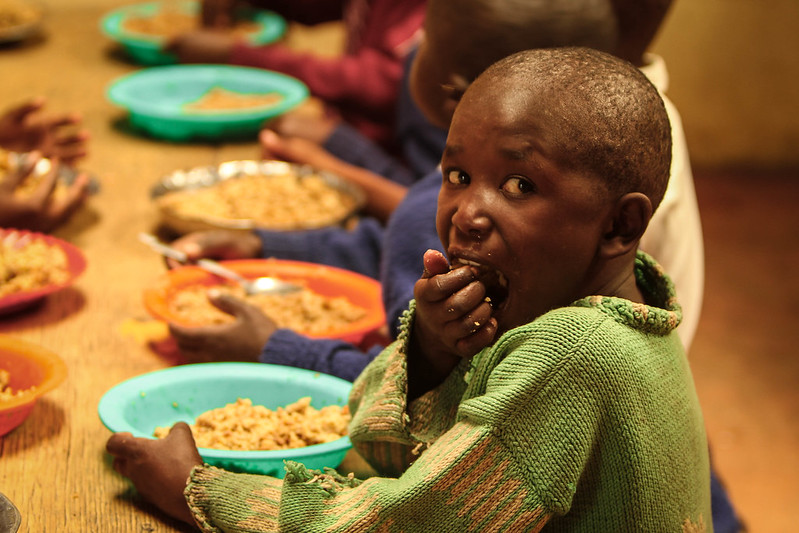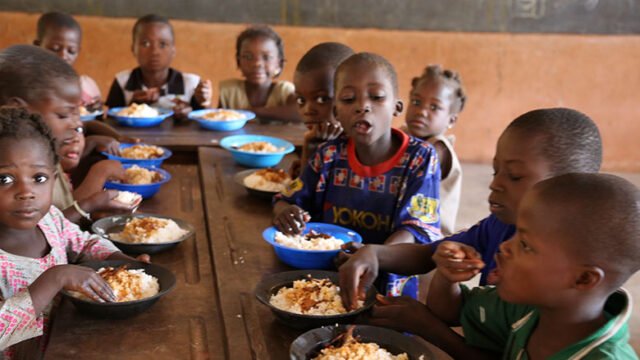Across Nigeria, millions of children begin their school day not with breakfast, but with hunger gnawing at their concentration and energy. The school hunger crisis in Nigeria has reached alarming levels, quietly undermining academic performance, health, and long-term national development. While the country grapples with inflation, poverty, and education reform, one harsh truth remains: a hungry child cannot learn. This crisis is not confined to a few rural areas—it’s widespread, persistent, and growing.
Every morning, countless Nigerian children walk into classrooms not with books in their hands, but with rumbling stomachs. This silent epidemic—of going to school on an empty stomach—is more than a momentary hardship. It’s a national crisis, one that undermines both education and long-term development.
Recent assessments from UNICEF and Save the Children reveal the scale and severity of the issue. Around 11 million Nigerian children under the age of five suffer from extreme food poverty—defined as consuming only one or two food groups—making them up to 50% more likely to experience life-threatening malnutrition such as wasting. Meanwhile, 5.4 million children are at risk of acute malnutrition by April 2025, with 1.8 million facing its most severe form

Yet, these figures only hint at the reality. In regions across Nigeria, countless school-aged children arrive unprepared to learn, not due to inadequate teaching, but because their bodies lack the fuel to think, concentrate, or engage.
The Impact on Education and Health
Classrooms filled with empty stomachs quickly become ineffective learning environments. Nutrition-focused NGOs operating in regions like the Niger Delta report that hungry students struggle to focus, retain information, and stay alert. A moving example from Rivers State recounts Mary, a 10‑year‑old who once found classroom words “blurry” until school feeding programs restored her ability to learn.
Nutrition experts highlight that hunger not only hinders cognition but also compromises physical health. Children who skip meals are more prone to infections, stunting, anaemia, and chronic illnesses later in life. According to PUNCH Healthwise, malnourished girls risk pelvic bone issues that can complicate childbirth when they grow up.
On a national level, this crisis undermines progress toward the Sustainable Development Goals. With approximately 40% of under‑5s stunted, 7–8% wasted, and 22–27% underweight, Nigeria ranks among the worst-affected globally.
Root Causes: Poverty, Inflation, and Systemic Gaps
Why are so many children starving before lessons begin?
1. Skyrocketing food costs.
Data from Nigeria’s National Bureau of Statistics shows food inflation rising by over 30%, making nutritious meals out of reach for many families reddit.com+14punchng.com+14reddit.com+14reddit.com. As inflation erodes household income, parents are forced to cut essential meals.
2. Widespread poverty and food insecurity.
Approximately 40% of Nigeria’s population lives below the $1.90 poverty line, with another 25% at risk en.wikipedia.org. Many rural and conflict-affected communities face crop failures, displacement, or have lost access to land, compounding hunger .
3. Failures in school feeding programs.
Despite federal commitments to reach 20 million children by 2030, corruption and mismanagement have derailed efforts at state levels. In states like Kano, entire days pass without meals for thousands of students due to vendor non-payment and supply failures guardian.ng.
The Human Cost
The statistics capture trend lines, but the faces behind them tell the true story.
In Kano State, children queue empty-handed at school gates, waiting for food that may never come. In Niger State and Kaduna, hunger-related absenteeism and early dropouts are rampant as students skip class to work or search for meals.
These gaps in learning today often translate to lost opportunities tomorrow. Children grow up with weakened bodies, stunted minds, and limited prospects, becoming yet another generation stuck in the cycle of poverty and inequality.

A Way Forward: Practical and Urgent Solutions
Experts agree that the response must be decisive and multi‑dimensional:
- Institutionalise and fund school feeding.
Nigeria’s pledge through the School Meals Coalition to expand coverage by 2030 is a key step. Scaling up must be linked to transparency and local procurement to engage farmers and eliminate corruption. - Targeted social protection.
Cash or food voucher schemes can help vulnerable families access daily nutrition. UNICEF and partners advocate for safety nets that ensure children eat consistently. - Nutrition-sensitive interventions.
Beyond calories, children need diverse diets. Government guidelines are needed to ensure school meals include protein, fruits, vegetables, and micronutrients. Regulations should also curb the marketing of ultra-processed foods. - Community engagement and local accountability.
Empowering parents, NGOs, and local officials to monitor meal delivery can guard against fraud, promote quality, and foster genuine investment in children’s well-being.
Final Word
The school hunger crisis in Nigeria is not simply a matter of empty plates—it’s a denial of childhood, opportunity, and potential. As inflation bites, as conflict persists, and as corruption undermines public programs, more children will continue to go hungry—unless bold action is taken.
When a child sits in class hungry, she struggles not only with mathematics or language—she also battles against the basic biology of sustenance. That is why addressing this crisis matters. It isn’t just about food. It’s about futures.
Join Our Social Media Channels:
WhatsApp: NaijaEyes
Facebook: NaijaEyes
Twitter: NaijaEyes
Instagram: NaijaEyes
TikTok: NaijaEyes
READ THE LATEST EDUCATION NEWS








































